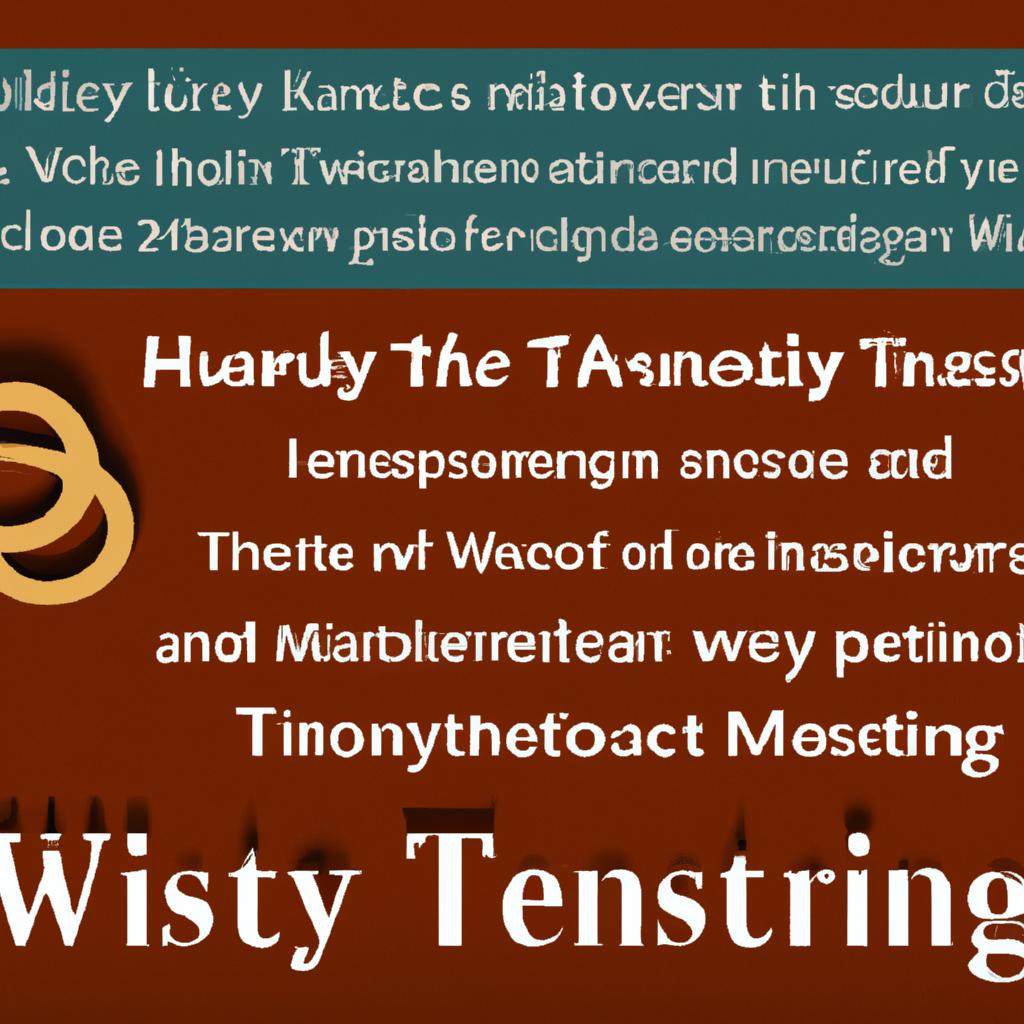Are You Familiar with the Distinctions between a Will and a Trust?
Estate planning involves two significant concepts: wills and trusts. Both instruments serve the purpose of distributing assets after death, but the way they operate differs. This article aims to highlight the essential differences between wills and trusts, shedding light on their unique roles in protecting and distributing assets.
Understanding Estate Planning: Will vs. Trust
Wills, which are legal documents, detail the distribution of a person’s assets and possessions after their passing. They designate who will inherit the property and who will be responsible for executing their wishes. Wills typically undergo probate court proceedings, where the distribution of assets is overseen by a judge.
On the other hand, trusts involve a legal arrangement in which a person (the trustor) transfers assets to a trustee for the benefit of another person (the beneficiary). Unlike wills, trusts bypass probate, saving time and costs for the beneficiaries, and also offer more privacy as their contents are not part of the public record.
Key Differences Between a Will and a Trust
Probate: Wills go through probate, while trusts do not, saving beneficiaries time and expenses.
Privacy: Trusts offer more privacy, as their contents are not part of the public record, unlike wills.
Cost: Establishing and maintaining a trust may incur higher initial costs but can potentially save money in the long run by avoiding probate costs.
Benefits of a Will and a Trust in Estate Planning
Both wills and trusts have their unique benefits, impacting the distribution of assets after one’s passing. A will allows individuals to specify the distribution of assets, appoint guardians for minor children, and can be easily updated as circumstances change. Trusts, on the other hand, help avoid probate and provide privacy, with flexibility in managing and distributing assets.
Choosing Between a Will and a Trust: Factors to Consider
Privacy and the complexity of the estate are significant factors in choosing between a will and a trust. A will, being a public document, becomes part of the public record through probate court, while a trust remains private. Additionally, the complexity of the estate and the potential tax implications may lean towards the use of a trust. The cost of creating and maintaining a will versus a trust should also factor in, as the initial cost of a trust may be higher but can save money in the long run.
The Way Forward
Understanding the difference between a will and a trust is crucial for ensuring that one’s assets are managed according to their wishes. Wills offer simplicity and are commonly used, while trusts provide more privacy and flexibility. It is essential to consult with legal professionals to determine which option aligns best with individual circumstances and goals. Whichever option is chosen, proper planning for the future can provide peace of mind for both individuals and their loved ones.

Unraveling the Mystery: Understanding the Key Differences Between a Will and a Trust
When it comes to estate planning, many people are familiar with the concepts of a will and a trust, but may not fully understand the differences between the two. While both are key components of a comprehensive estate plan, they serve different purposes and have distinct advantages and disadvantages. In this article, we will delve into the nuances of wills and trusts, unraveling the mystery behind these essential estate planning tools.
What is a Will?
A will, also known as a last will and testament, is a legal document that outlines how a person’s assets and property should be distributed after their death. A will can also designate guardians for minor children and specify other important matters, such as funeral arrangements. One of the key features of a will is that it only goes into effect upon the person’s death.
Key Features of a Will:
- Only goes into effect upon death
- Can be easily amended or revoked
- Must go through probate
- Publicly available document
What is a Trust?
A trust, on the other hand, is a legal arrangement in which a person (the trustor) transfers assets to a trustee to hold and manage on behalf of beneficiaries. The trustee is responsible for following the instructions outlined in the trust document and distributing the assets according to the trustor’s wishes. Unlike a will, a trust can be put into effect during the trustor’s lifetime and can also continue after their death.
Key Features of a Trust:
- Can be put into effect during the trustor’s lifetime
- Can avoid probate
- Can provide privacy and confidentiality
- May offer tax benefits
Benefits of a Will:
While there are advantages to both wills and trusts, wills are still a valuable estate planning tool for many individuals. Some benefits of a will include:
- Simple to create
- Cost-effective
- Can designate guardians for minor children
- Can specify funeral arrangements
Benefits of a Trust:
Trusts offer a number of advantages that may make them a preferred option for certain individuals. Some benefits of a trust include:
- Can avoid probate
- Provides privacy and confidentiality
- Can be used for incapacity planning
- May offer tax benefits
Practical Tips:
When deciding whether to create a will or a trust, it is important to consider your individual circumstances and goals. Here are some practical tips to help you make an informed decision:
- Consult with an estate planning attorney to discuss your options
- Consider the size and complexity of your estate
- Think about your goals for asset distribution and privacy
- Review and update your estate plan regularly
Case Studies:
Here are two case studies that illustrate the differences between wills and trusts in practice:
| Case Study 1: Wills |
|---|
| John creates a will outlining how his assets should be distributed after his death. The will goes through probate, and the court oversees the distribution of his assets according to his wishes. |
| Case Study 2: Trusts |
|---|
| Sarah establishes a trust during her lifetime and places her assets in the trust. She appoints a trustee to manage the assets and distribute them to her beneficiaries after her death, bypassing probate. |
Firsthand Experience:
As an estate planning attorney with over a decade of experience, I have helped countless clients navigate the complexities of wills and trusts. Each client has unique needs and goals, and I work closely with them to create personalized estate plans that reflect their wishes and protect their loved ones.
Whether you choose a will, a trust, or a combination of both, the key is to have a well-thought-out estate plan in place to ensure your assets are distributed according to your wishes. By understanding the differences between wills and trusts, you can make informed decisions that will benefit you and your family for years to come.


